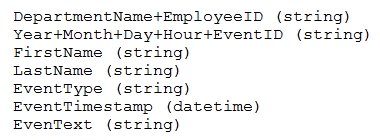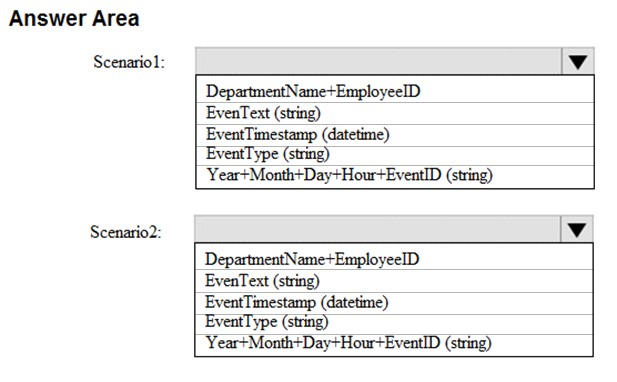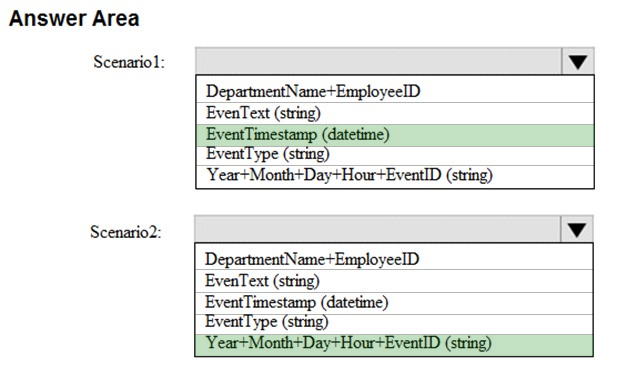

HOTSPOT -
You are designing a solution that will use Azure Table storage. The solution will log records in the following entity.
You are evaluating which partition key to use based on the following two scenarios:
✑ Scenario1: Minimize hotspots under heavy write workloads.
✑ Scenario2: Ensure that date lookups are as efficient as possible for read workloads.
Which partition key should you use for each scenario? To answer, select the appropriate options in the answer area.
NOTE: Each correct selection is worth one point.
Hot Area:

Yuri1101
Highly Voted 5 years, 2 months agoJamesCho
5 years, 1 month agovistran
5 years, 1 month agoTreadmill
4 years, 10 months agogroy
Highly Voted 4 years, 9 months agoPairon
Most Recent 4 years, 3 months agoPairon
4 years, 3 months agoAhmedReda
5 years agoAbhilvs
5 years agoAsh666
4 years, 10 months agoMathster
5 years, 1 month agoazurearch
5 years, 1 month agoTombarc
5 years, 2 months agoazurearch
5 years, 1 month agoazurearch
5 years, 1 month agozb99
5 years, 2 months agoapz333
5 years, 2 months ago